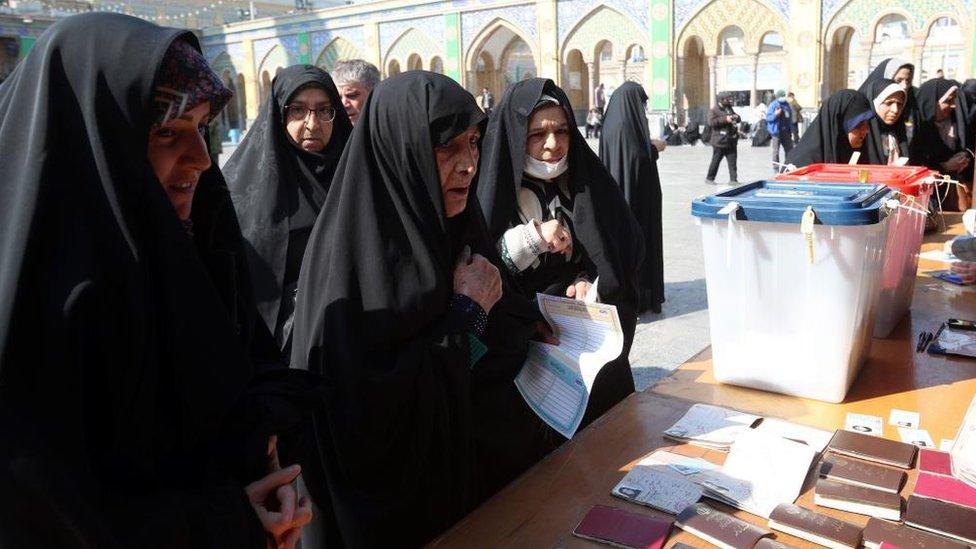Iran election: 'We need to be decisive for our country's future'
- Published
Watch: The BBC's Carrie Davies visits a Tehran polling station as voting begins
People in Iran are voting in elections for a new parliament today - the first test of opinion there since a series of protests against the hardline Islamic regime.
But turnout is expected to be low, with several blocks of reformist politicians boycotting the election altogether.
Iran has been badly hit by international sanctions, an economic crisis, widespread hardship and violent unrest.
With that in mind, I have headed to Tehran to report on the elections after receiving rare permission to report from there.
The BBC has not been allowed to report from Iran since 2019.
At religious institute Hosseinieh Ershad, which has been turned into a polling station for the day, local and international media scrum around the building's steps and into the voting hall.
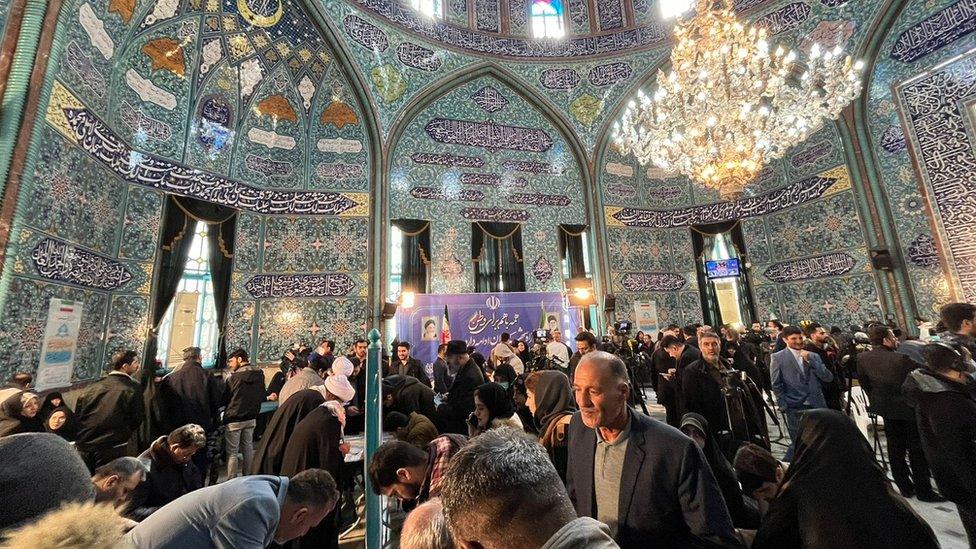
People gather to vote inside the Hosseinieh Ershad - used as a polling station in eastern Tehran
Dawood Manzoor, an Iranian vice president who also heads the Plan and Budget Organisation, told the BBC that people who believed in the Islamic republic and the revolution were taking part in the vote and "they are not few".
"We believe that by choosing the right candidates people are choosing their own destiny and the parliament can work together with the government to service the people," he said.
The large media presence at the institute means it's a location some want to be seen to be voting at.
A number of former Iranian MPs and ministers are lined up to cast their votes and talk to the media there.
Alongside them is a newly married couple, who have come straight to the polling station with the bride still dressed head-to-toe in white.
BBC News agreed not to use this content on BBC Persian in order to report on the elections from inside Iran.
Outside the polling station, one man is distributing roses. Today is a celebration, he says. The key question is how many share his enthusiasm.
On Friday, people are voting to choose their members of parliament as well as the clerics of the Assembly of Experts, the body in charge of selecting Iran's supreme leader.
But there have been concerns about voter turnout at this election. Early polling suggested it could be at a record low and thought to be particularly low in Tehran.
A state-linked polling agency projected a 41% turnout for the parliamentary elections - which, if accurate, will be the lowest turnout in the past 12 such ballots.
Bucking that trend is Mariam Asgari, who has come to the Hosseinieh Ershad to vote with her son.
When I ask her what issues she is considering when voting, she says: "I would want to choose someone who will stop the US and Israel from interfering in our country."
Iran's authorities have labelled the country part of the "axis of resistance" against what they see to be the United States and Israel's influence in the region.
They have framed the election as a way to strengthen Iran.
On Wednesday, Supreme Leader Ayatollah Ali Khamenei urged citizens to cast their votes, saying if they failed to do so in large numbers - Iran's enemies "will threaten your security in one way or another".
Many I speak to cite the supreme leader's call as a reason for their ballot.
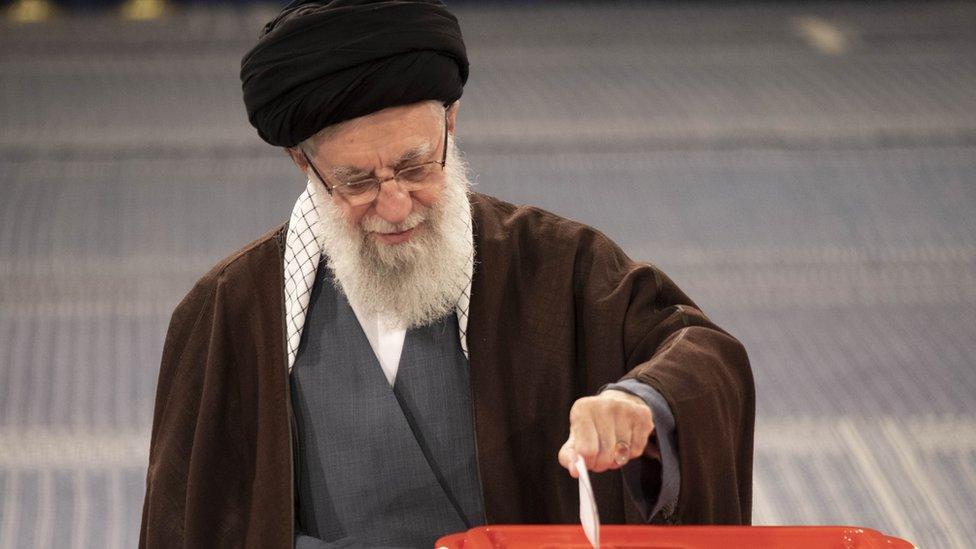
Supreme Leader Ayatollah Ali Khamenei has held the position for more than 30 years
Mr Rohani, a professor, has come to the polling station with his wife, son, daughter-in-law and grandchild, who is still a toddler in a pram.
"It is people's own choice if they want to vote or not, but the people that don't vote are cutting themselves off from their own fate," he tells me.
"They are saying, we don't want to decide the future of our country.
"In my personal opinion that is not the right choice, we believe that we need to be decisive for our country's future, that is why we vote."
Others view it differently - not voting has been seen in Iran as a way of showing dissatisfaction with Iran's authorities when voters do not feel their views are reflected by the candidates standing.
Many are therefore choosing not to vote following the mass protests of 2022, which were triggered by the death in custody of 22-year-old Mahsa Amini.
But Vice President Manzoor said the country had gone "back to normal" after the protests.
"The Western media's pressure on Iran especially during the protests last year which were inciting people against the government has proved to be failing, and people still feel a connection with the government," he said.
Voting was due to run until 18:00 local time (1430 GMT) but has been extended and could continue past midnight.
Related topics
- Published21 September 2023
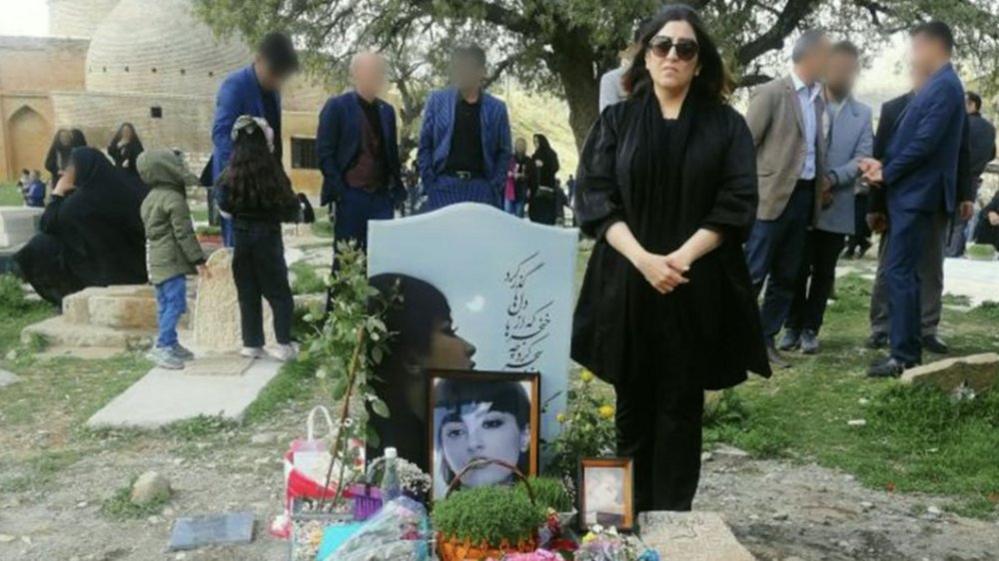
- Published28 February 2024
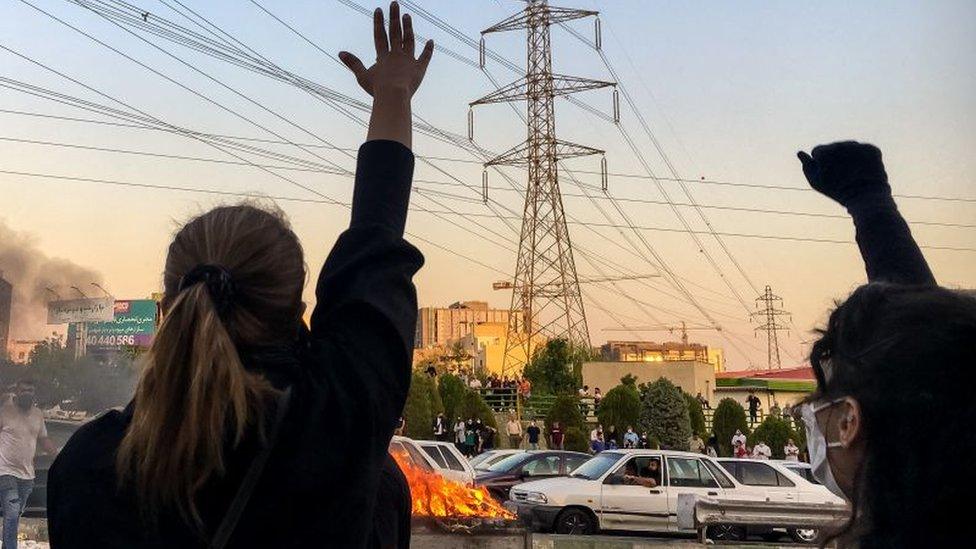
- Published29 February 2024
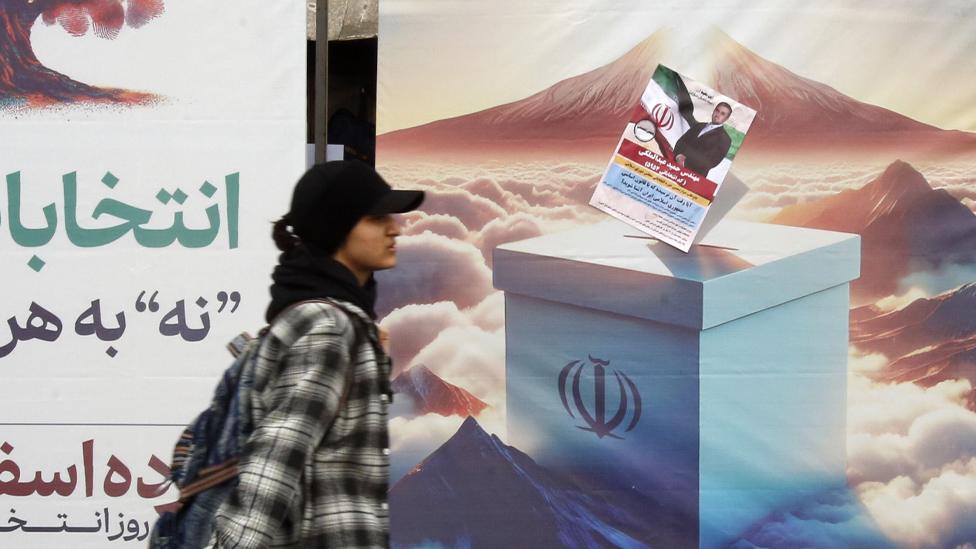
- Published1 March 2024
